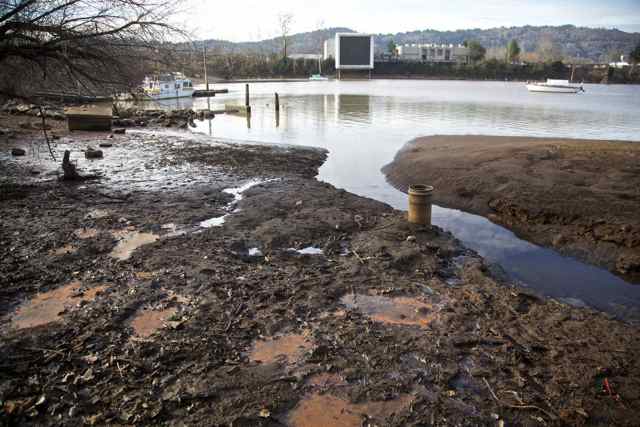forum
library
tutorial
contact

Community Group Bashes Portland Harbor
Cleanup Options as Too Weak
Kelly HouseThe Oregonian, October 19, 2015
|
the film forum library tutorial contact |

|
Community Group Bashes Portland Harbor
Kelly House |
 The community group that has advised federal regulators on a plan to decontaminate the lower Willamette River is arguing none of the options on the table would keep their community safe.
The community group that has advised federal regulators on a plan to decontaminate the lower Willamette River is arguing none of the options on the table would keep their community safe.
The Portland Harbor Community Advisory Group, planned to gather Monday in Cathedral Park to unveil an alternative plan they have submitted to the Environmental Protection Agency's National Remedy Review Board.
Their plan calls for a more aggressive cleanup effort than any the EPA is currently considering.
The advisory group bashed the list of cleanup options the agency unveiled this year as too weak.
"None of the cleanup alternatives outlined in the feasibility study achieve sediment contamination reductions that will result in a healthy river," the group argued in comments submitted Monday to the federal environmental agency.
Advisory group members blame "enormous pressure" from polluters looking to spend as little as possible to clean up the environmental damage they have wreaked upon the river. Those groups, known as Potentially Responsible Parties, include the City of Portland, the Port of Portland, and multiple other companies.
"We do not want pressure for cheap and fast to override the need to get it done right," the group's comments read.
All available options leave too many contaminants in the river, they argue, and would threaten the health of humans, fish and wildlife for generations to come.
The EPA is scheduled to settle on a cleanup plan sometime next year and the public will have a chance to review and comment on that plan before anything is final.
Among the group's biggest concerns is the possibility that the EPA could recommend so-called "monitored natural recovery" in part or all of the superfund zone. Contaminated soils would be left in place to eventually float downriver, become buried under sediment, or gradually lose toxicity.
"It is at odds with years of research and common sense to ask the public to accept that natural recovery would suddenly represent an effective clean-up strategy for contaminants which have already remained in the river for 50 to 100 years or more," the advisory group argues.
The group is proposing another option that leaves no contaminated soil in the river. Under that option, sediment to be dredged from the riverbed and transported to landfills. Some entities responsible for footing the cleanup bill have argued 24/7 dredging would be too noisy, posing a nuisance for people living near the superfund site.
The advisory group dismisses that claim as "nothing more than a self-serving argument raised by PRPs to extend the clean-up time period and faux concern for the community."
Read the full text of the group's comments.
learn more on topics covered in the film
see the video
read the script
learn the songs
discussion forum
